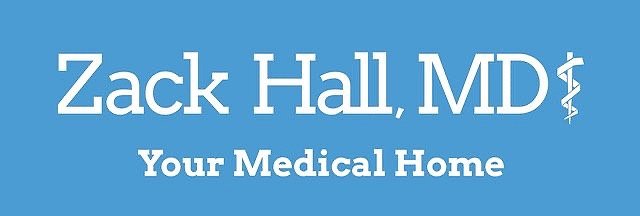Cholesterol
Cholesterol is a soft waxy substance found in the blood stream and in every cell in your body. Cholesterol is an important part of a healthy body because it's used for producing cell membranes and some hormones, and serves other needed bodily functions.
Why are we concerned about our cholesterol?
High cholesterol is one of the major controllable risk factors coronary heart disease, heart attack and stroke. When there's too much cholesterol in your blood, you may develop fatty deposits in your blood vessels. Eventually, these deposits restrict blood flow in your arteries to areas such as your heart or brain which increases the risk of heart attack or stroke.
What is the difference between the types of cholesterol?
Cholesterol can't dissolve in the blood. It has to be transported to and from the cells by carriers called lipoproteins.
LDL "Bad" cholesterol transports cholesterol throughout your body. When too much LDL cholesterol circulates in the blood, it can slowly build up in the inner walls of the arteries forming a plaque which narows your arteries. This is the primary focus of treatment. Depending on your risk factors will determine how low your LDL goal will be.
HDL "Good" cholesterol picks up the excess cholesterol and takes it back to your liver for excretion. This "good" cholesterol helps transport away the "bad" cholesterol. Typically for males the goal is >40mg/dl and females >50mg/dl.
TG Triglycerides is a form of fat made in the body. Elevated triglycerides can be due to overweight/obesity, physical inactivity, cigarette smoking, excess alcohol consumption and a diet of very high carbohydrates (60% of total calories or more). Normal level is <150mg/dl.
Classification
Total Cholesterol
<200 Desirable
200-239 Boderline High
≥240 High
LDL Cholesterol
<100 Optimal
100-129 Neat Optimal
130-159 Boderline High
160-189 High
≥190 Very High
Triglycerides
<150 Normal
150-199 Borderline High
>200 High
HDL Cholesterol
<40 low (Males)
<50 low (Females)
What puts me at risk for having high cholesterol?
You're more likely to have high cholesterol if you are inactive, obese or eat unhealthy foods. Although high cholesterol can lead to heart disease on its own, other factors compound the risk.
Smoking cigarettes damages the walls of your blood vessels, making them likely to accumulate fatty deposits. Smoking may also lower your level of HDL cholesterol.
High blood pressure increases the pressure on your artery walls and causes damage, which can speed up the accumulation of fatty deposits.
Diabetes contributes to high LDL cholesterol and low HDL cholesterol. High blood sugar also damages the lining of your arteries.
Family history of heart disease, if a parent or a sibling developed heart disease before age 55, high cholesterol levels pace you at a greater risk for developing heart disease.
How can I treat my high cholesterol?
Depending on your cholesterol levels, your physician my initially recommend lifestyle changes to lower your cholesterol.
A. Healthy diet, what you eat has a direct impact on your cholesterol level. In fact, researchers say a diet rich in fiber and other cholesterol-lowering foods may help lower cholesterol as much as certain cholesterol lowering medications for some people.
Choose healthier fats. Saturated fat and trans fat raise your total cholesterol and LDL cholesterol. Get no more than 10% of your daily calories from saturated fat, and try to avoid trans fat completely. Monounsaturated fat – found in olive, peanut and canola oils – is a healthier option. Raw almonds and walnuts are other sources of healthy fat.
Limit your cholesterol intake. Aim for no more than 300mg(milligrams) of cholesterol a day – or less than 200mg if you have heart disease. the most concentrated sources of cholesterol include organ meats, egg yolks and whole milk products. Use lean cuts of meat, egg substitutes and skim milk instead.
Select whole grains. Various nutrients found in whole grains promote heart health. Choose whole-grain breads, whole-wheat pasta, whole-wheat flour and brown rice. Oatmeal and oat bran are other good choices.
Stock up on fruits and vegetables. Fruits and vegetables are rich in dietary fiber, which can help lower cholesterol. Snack on seasonal fruits. Experiment with veggie-based casseroles, soups and stir-fries.
Eat heart-healthy fish. Some types of fish – such as cod, tuna and halibut – have less total fit, saturates fat and cholesterol than do meat and poultry. Salmon, mackerel and herring are rich in omega-3 fatty acids, which help promote heart health.
Drink alcohol only in moderation. if you choose to drink, do so in moderation. This means no more than one drink a day for women, and one to two drinks a day for men.
B. Regular exercise can halp improve your cholesterol levels. With your doctor's approval, work up to 30 to 60 minutes of exercise a day. Take a brisk daily walk, ride your bike or swim laps. To maintain your motivation, keep it fun – find an exercise buddy or join an exercise group.
C. Don't Smoke. If you smoke, stop! Quitting can improve your HDL cholesterol level, the benefits don't end there – Just 20 minutes after quitting, your blood pressure decreases. Within 24 hours, your risk of a heart attack decreases. Within one year, your risk of heart disease is half that of a smoker. Within 15 years, your risk of heart disease is similar to that of someone who has never smoked.
